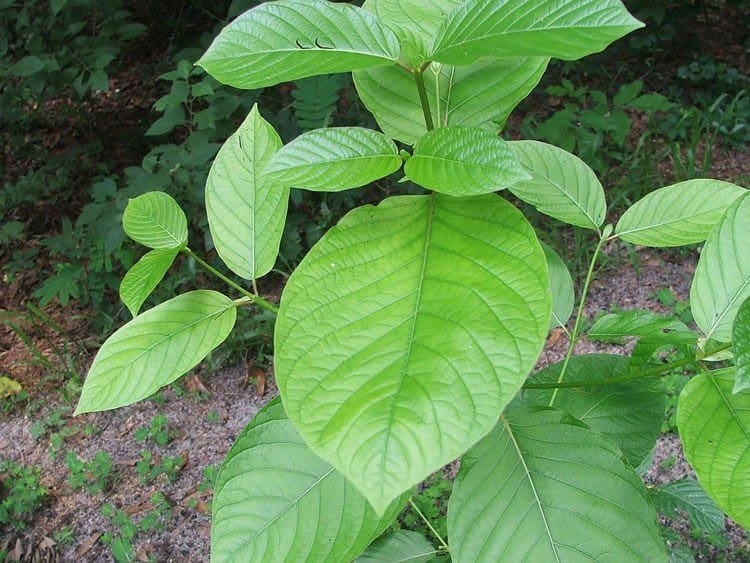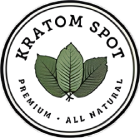
Mitragyna speciosa is a tropical evergreen tree native to Southeast Asia. You may know it more simply as the kratom tree. While kratom has gained attention in the U.S. and Europe over the last decade, the leaves of this tree have been traditionally used in parts of Southeast Asia for generations.
What makes Mitragyna speciosa unique is the leaf itself. Once harvested and dried, the leaves can be milled into a fine powder that’s commonly used in teas, capsules, or mixed into beverages. Few plants offer the same versatility in form or preparation.
If you’ve ever been curious about where kratom comes from and what makes the Mitragyna speciosa leaf distinct, this guide breaks it down—from the plant’s natural environment to how the leaves are processed.
Of course, if it sounds interesting to you, purchase the highest quality kratom on the market at Kratom Spot.
About the Mitragyna Speciosa Plant
The Mitragyna speciosa tree is a member of the coffee family (Rubiaceae). It thrives in hot, humid climates and nutrient-rich soil, often growing near rivers and lowland forests.
Key characteristics of the kratom tree include:
-
A tall, straight trunk with smooth gray bark
-
Mature trees reaching heights of 60–80+ feet
-
Large, oval-shaped leaves that can grow up to 8 inches long
-
Glossy, deep green foliage when fully mature
Mitragyna speciosa grows naturally throughout Southeast Asia, including Thailand, Indonesia, Malaysia, Myanmar, Papua New Guinea, and Borneo. Today, many kratom leaves are cultivated on managed farms throughout the region, where growers focus on consistent harvesting and traditional drying techniques.
Alkaloids Found in Mitragyna Speciosa Leaves
The Mitragyna speciosa leaf contains naturally occurring alkaloids. The two most commonly discussed are:
-
Mitragynine
-
7-hydroxymitragynine
These compounds are unique to the kratom plant and are the primary reason the leaf differs from other botanical powders. Alkaloid content can vary based on growing conditions, leaf maturity, and post-harvest processing methods.
How Kratom Strains Are Classified
Kratom “strains” are typically named based on vein color and region of origin, rather than botanical differences. All kratom comes from the same species: Mitragyna speciosa.
Vein Colors
Kratom leaves are commonly grouped into three vein categories:
- Red vein – Leaves harvested at a later stage of maturity
- Green vein – Leaves harvested at mid-maturity
- White vein – Younger leaves, often harvested earlier
The vein color is influenced by the leaf’s maturity and how it is dried or cured after harvest.
Regional Names
Strain names also often reference where the leaves were grown or processed. Common regional labels include:
- Indonesia
- Sumatra
- Borneo
- Bali
- Thailand
- Malaysia
These regional names typically reflect sourcing and processing traditions rather than distinct plant genetics.
How Mitragyna Speciosa Leaves Are Processed
After harvesting, kratom leaves are cleaned and dried before being finely milled into powder. Reputable vendors use no additives, fillers, or chemical treatments—just the dried leaf itself.
Different processing methods can influence the final product:
-
Sun-dried leaves may be used to create gold or yellow varieties
-
Fermented leaves are used to produce Bentuangie-style kratom
-
Extracts are made by concentrating leaf material into a resin or powder with higher alkaloid density
Most kratom products are sold as powder or encapsulated powder, allowing for a range of preparation preferences.
Choosing a Trusted Kratom Vendor
Because kratom is a natural plant product, quality and sourcing matter. A reputable vendor should prioritize:
-
Lab testing for purity and consistency
-
Transparent sourcing from Southeast Asia
-
No additives, fillers, or synthetic ingredients
-
Responsible harvesting and supplier relationships
At Kratom Spot, all kratom products are sourced directly from experienced growers and tested for quality before reaching customers. Each batch is evaluated to ensure it meets internal standards for cleanliness and consistency.
Final Thoughts on the Kratom Leaf
Understanding the Mitragyna speciosa plant helps demystify kratom and puts the focus back on what it really is: a tropical leaf with a long cultural history and a unique botanical profile.
If you have additional questions about kratom sourcing, processing, or product types, our team is always happy to help. You can reach Kratom Spot by phone at (888) 510-2038 or email info@kratomspot.com

